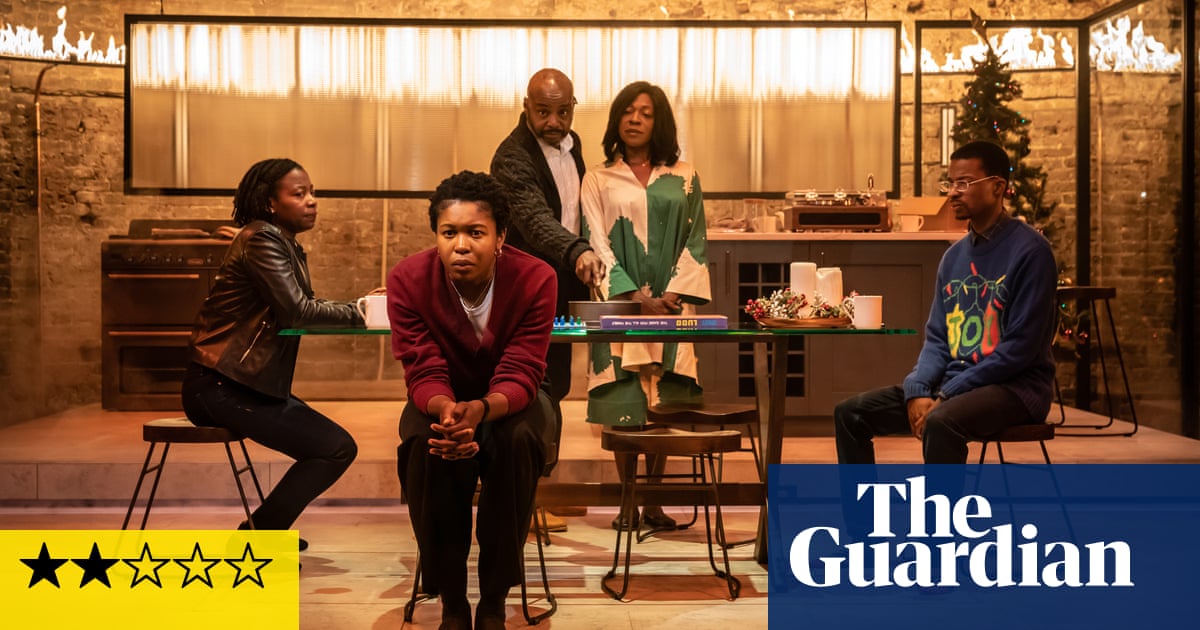The Clinic review – culture wars erupt at a birthday party - 2 minutes read

Questions about change … Mercy Ojelade, Gloria Obianyo, Maynard Eziashi, Donna Berlin and Simon Manyonda in The Clinic at the Almeida. Photograph: Marc Brenner Theatre Almeida, London
A family fight about politics, policing and race in Dipo Baruwa-Etti’s play but the ominous early signs lead nowhere
The Clinic starts off with a satirical set piece as a Black middle-class family meets over a birthday dinner in their airy kitchen. Nigerian-born, Tory-voting parents lock heads with the children: a police officer son, his Labour MP wife, and a junior doctor daughter. The culture wars erupt as they fight about politics, policing and race; they could be the affluent family from Zadie Smith’s On Beauty being teasingly sent up.
Dipo Baruwa-Etti’s early dialogue shimmers with quick wit, intelligence and delightful touches (Happy Birthday is sung with harmonies, gospel-style). Siblings Ore (Gloria Obianyo) and Bayo (Simon Manyonda) throw daggered salvoes at each other, the former out to expose her metropolitan family’s hypocrisies, while the parents, Tiwa (Donna Berlin) and Segun (Maynard Eziashi), emanate smugly earned privilege.
The plot takes a turn when Wunmi (Toyin Ayedun-Alase) is thrown into the mix: she is a poor, despairing activist who this family hopes to save. As Wunmi moves into the home, the production starts to waver, partly because she appears thinly formed – a vehicle to push the plot forward whose pain we never truly believe in.
Directed by Monique Touko, the story seems as if it could flip into domestic horror at any minute; there is a thrillerishness to the lighting (by Matt Haskins) and sound (by Christopher Shutt) which keeps us waiting for answers. Are the crackling light fittings on Paul Wills’s set signifying an alternate reality? Is Tiwa’s tea, which miraculously calms Wunmi, a magic brew? One of the play’s strengths, early on, is that we do not quite know where it is going.
Its ominous signs lead nowhere, turning back into political argument as the plot yields one odd turn after another without delivering in its climax. Yet, incredibly, this drama never stops being absorbing, partly because of the calibre of performances; Obianyo and Berlin are particularly strong.
The script asks questions about how change can be made and shows Black Britishness in its plurality, clashing at the intersections, even if its indictment of this middle-class family feels too total. Baruwa-Etti is, without doubt, an exciting writer and one to be watched.
Source: The Guardian
Powered by NewsAPI.org